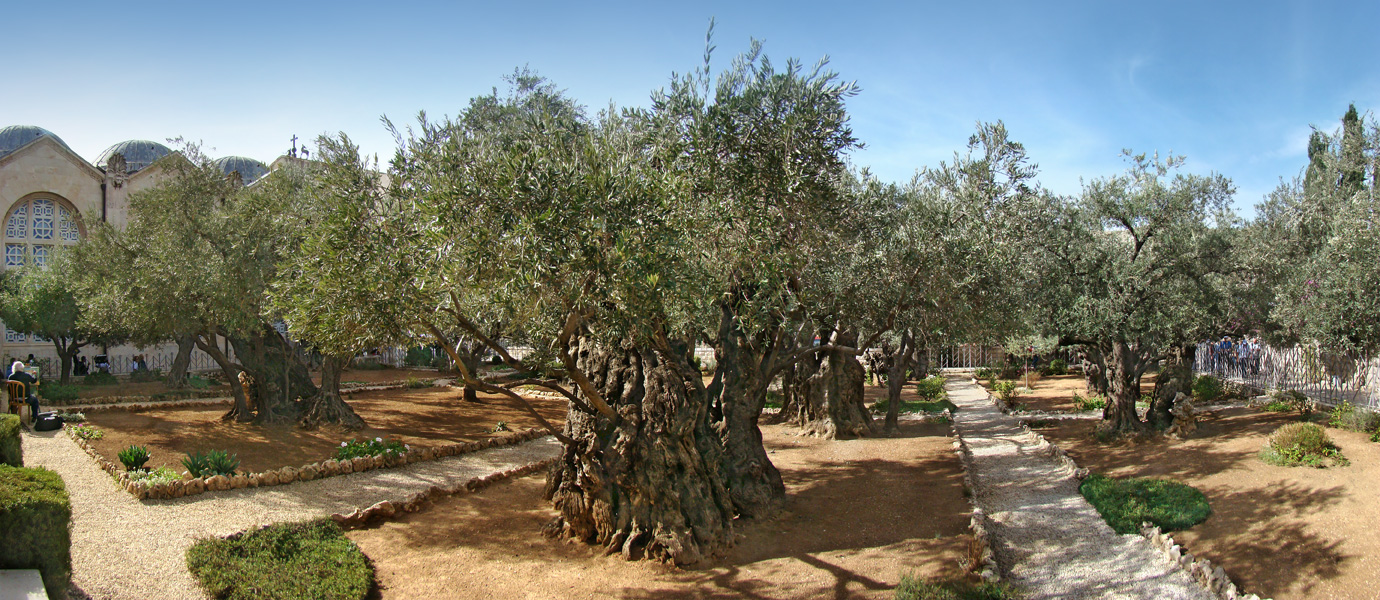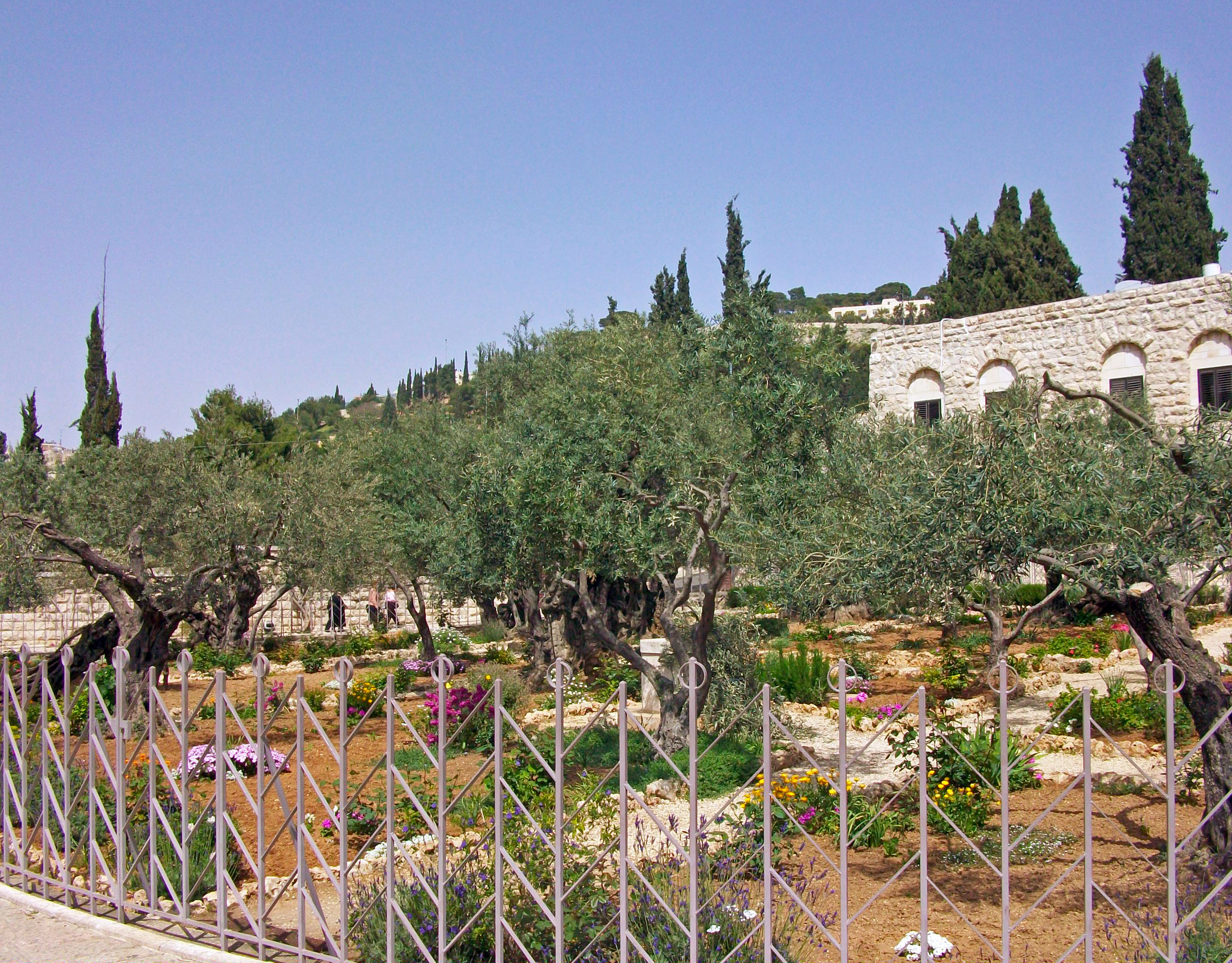Gethsemane
Gethsemane
The Garden of Gethsemane (meaning “oil press”) is located at the foot of the Mount of Olives. According to the gospels of Matthew (26:36-46) and Mark (14:32-42), on the night that he was betrayed Jesus went to the garden with his disciples to pray. Knowing that his time had come, Jesus took his three most trusted disciples—Peter, James and John—to stay with him. The letters of the name Gethsemane provide us a way to remember Jesus’ experience in the garden.
G – “Grieved” (Matt. 26:36-38; Mark 14:32-34). Having asked all of the disciples to “sit here while I pray,” Jesus, along with Peter, James and John, go to another spot in the garden to pray. Jesus shares the depth of his emotion with his most trusted friends: “I am deeply grieved, even to death.” He goes on to ask his friends to remain there and to “stay awake.”
E – “Even to death” (Matt. 26:37-38; Mark 14:34).
T – “Threw” (Matt. 26:39; Mark 14:35). After leaving the three, both Matthew and Mark paint a picture of just how distressed Jesus was. “He threw himself on the ground and prayed.”
H – “Himself” (Matt. 26:39; Mark 14:35).
S – “Sleeping” (Matt. 26:40, 43, 45; Mark 14:37, 40, 41). While Jesus is in another part of the garden fervently praying (Luke 22:45 states that Jesus’ “sweat became like great drops of blood” while he prayed), his three most trusted friends were not able to stay awake with him. Not once, but three times Jesus came back to them and “found them sleeping.”
E – “Eyes were (very) heavy” (Matt. 26:43; Mark 14: 40). The gospel writers provide the reason why they were sleeping—because their “eyes were (very) heavy.”
M – “My Father” (Matt. 26:39, 42; Mark 14:36 [Mark lacks “my”]). Not only do we get a glimpse of the depth of Jesus’ emotions and his humanity through the descriptions provided by the gospel writers but we also are given access to the words that he prayed. As you read his prayer, remember that Jesus is “deeply grieved, even to death” and he has “[thrown] himself on the ground.” Hear the emotion as he cries out, “My Father, if it is possible, let this cup pass from me” (Matt. 26:39).
A – “All things are possible” (Mark 14:36). “Abba, Father, for you all things are possible; remove this cup from me.”
N – “Not what I want” (Matt. 26:39; Mark 14:36). In the midst of his distress, Jesus displays his unfailing trust, confidence and obedience to his Father: “Yet, not what I want, but what you want.”
E – “Enough!” (Mark 14:43). Having come back to his sleeping disciples for the third time, Jesus says to them, “Are you still sleeping and taking your rest? Enough! The hour has come; the Son of Man is betrayed into the hands of sinners.” (Matthew lacks “Enough!”)
For more information:


